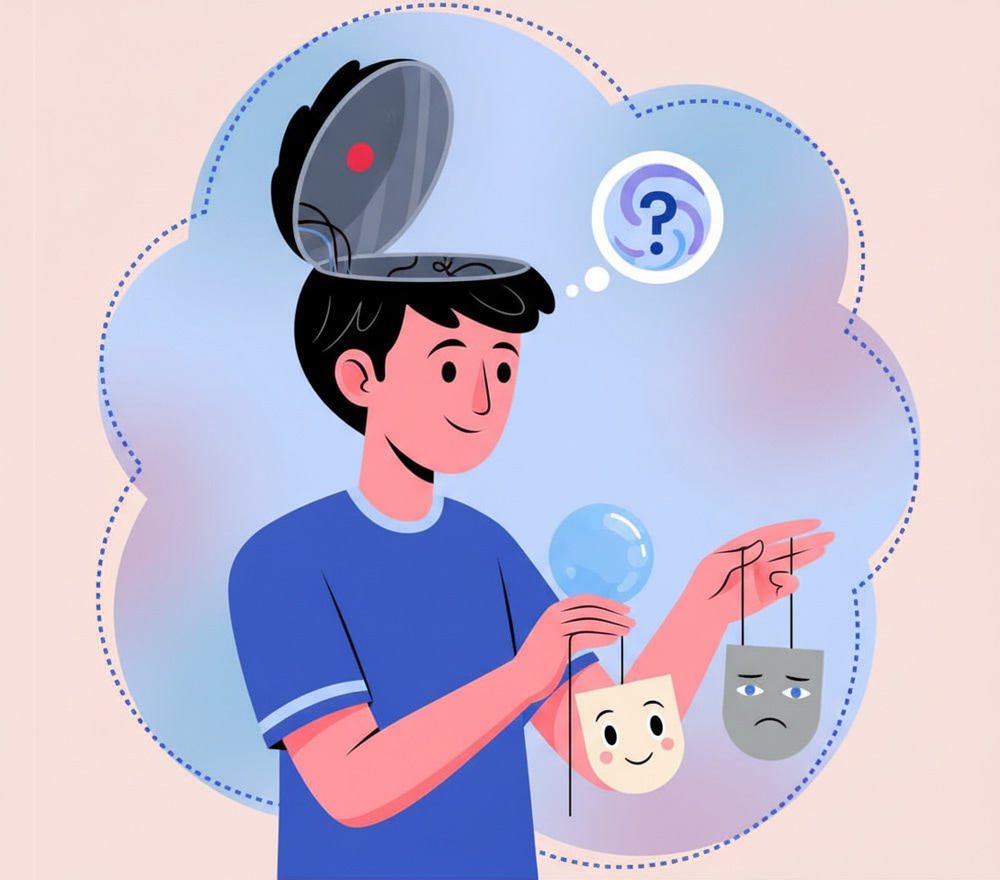A Complete Guide to Responsible Self-Reflection With Antisocial-Trait Quizzes

Test if You Are a Sociopath or Not
Get StartedUnderstanding the Purpose, Scope, and Realistic Expectations
Interest in personality tools that explore empathy, impulse control, and rule-breaking has surged in recent years. Within that landscape, the psychopath sociopath quiz can serve as a reflective exercise that helps you notice patterns of behavior, communication styles, and stress responses. Rather than labeling people, it frames your answers as tendencies along continua, which is essential for healthy, nonjudgmental self-assessment.
When people approach any assessment, the value comes from honest responses and thoughtful interpretation afterward. In that spirit, a well-designed sociopath quiz typically examines traits such as emotional detachment, callousness, and irresponsibility without declaring a diagnosis. That distinction matters because clinical evaluation involves interviews, corroborating information, and careful review of life context, which online questionnaires cannot reproduce.
Another reason these tools resonate is the promise of clarity about confusing behaviors, especially around boundaries and remorse. While that curiosity is understandable, a tool like the am i a sociopath quiz should be treated as informational guidance that invites deeper reflection rather than as a definitive classification. Reflecting on recent situations, conflicts, ethical dilemmas, or high-pressure decisions, often makes your responses more precise and the insights more actionable.
- Avoid using results to judge or diagnose yourself or others.
- Consider trends across multiple situations, not one-off incidents.
- Use the output to improve communication, self-regulation, and empathy.
How These Quizzes Work, What They Measure, and How to Read Results
Most instruments pose statements about emotions, risk-taking, and interpersonal conduct, asking you to rate how often they apply. In practice, an item-based approach reduces guesswork, although no scale can capture the whole person in a few minutes, and nuance always matters. As you respond, the phrasing may feel direct, and an item like the are you sociopath quiz typically uses balanced wording to discourage extreme response bias while still surfacing meaningful tendencies. For best results, answer based on typical behavior, not rare occasions or how you wish you would act.
| Domain Assessed | What High Scores Often Suggest | What Low Scores Often Suggest |
|---|---|---|
| Affective empathy | Emotional blunting, limited guilt, difficulty reading feelings | Warmth, compassion, attunement to others’ states |
| Impulsivity | Hasty decisions, thrill seeking, short-term focus | Planning, patience, future-oriented choices |
| Rule adherence | Boundary testing, disregard for norms, conflict with authority | Respect for rules, consistent follow-through |
| Responsibility | Blame shifting, unreliable commitments, rationalization | Ownership of outcomes, reliability, accountability |
Because people vary across life contexts, scores should be read as directional, not absolute. For instance, someone may be very controlled at work yet reckless socially, which yields mixed patterning that needs thoughtful interpretation. In this light, a reflective tool such as the am i sociopath or psychopath quiz highlights areas for growth and personal boundaries you may want to set or renegotiate, especially around emotional safety and long-term decision-making.
Another practical lens is to track your results across time to notice whether stress, sleep, or major life events shift your tendencies. Patterns across multiple checkpoints are typically more informative than one score taken in isolation. Under that approach, an exploratory resource like the am i a psychopath or sociopath quiz becomes a longitudinal mirror that encourages steady improvements in empathy and self-regulation, rather than a static label that boxes you in.
- Answer quickly and honestly to reduce social desirability bias.
- Revisit after several weeks to see if strategies you try are working.
- Pair insights with concrete habits such as journaling, feedback, and time-outs.
Benefits, Boundaries, and Ethical Use of Antisocial-Trait Assessments
Quizzes can be catalysts for insight when they promote compassionate self-awareness and better relationship hygiene. The most helpful tools offer clarity about emotional blind spots, triggers, and coping styles, and they inspire constructive change rather than shame. From an ethical standpoint, the am i psychopath or sociopath quiz is best treated as education and entertainment, not a clinical verdict, which ensures it remains a springboard to growth instead of a weapon for labeling.
One tangible benefit is vocabulary: once you can name a pattern, you can notice it earlier and redirect it faster. Likewise, noticing where you score lower in affective attunement can motivate skill-building in active listening, perspective taking, and repair attempts after conflict. For people seeking contrast between different antisocial profiles, a reflective tool like the sociopath or psychopath quiz can outline broad differences in risk-taking, remorse, and attachment without claiming diagnostic precision, which responsibly manages expectations and reduces stigma.
There are also clear limitations that demand caution, including sampling bias, mood effects, and answer framing that can distort self-perception. No online tool can account for trauma history, neurodiversity, or cultural norms without context, and that context is vital. For this reason, using a comparative lens such as the sociopath psychopath quiz should always be accompanied by disclaimers that it complements, not replaces, professional consultation, especially if your results cause distress or interfere with daily functioning.
- Benefit: Language and structure for talking about difficult behaviors.
- Benefit: A low-stakes way to practice self-honesty and empathy.
- Limitation: Snapshot data that cannot see motives or history.
- Limitation: Risk of overconfidence or self-labeling without evidence.
How to Take These Quizzes Responsibly and Put Insights Into Practice
Preparation and mindset significantly influence the usefulness of your results. Choose a calm moment, silence notifications, and decide to answer based on typical behavior over the last three to six months. With that intentional framing, a balanced resource like the are you a sociopath or psychopath quiz becomes a tool for experimentation, try one behavioral tweak, retake later, and track whether real-life outcomes improve in measurable ways.
As you review your score, translate abstract traits into concrete actions such as “pause before replying,” “write an empathy check,” or “confirm consent explicitly.” Planning small experiments builds momentum and keeps the focus on skills rather than labels. If your curiosity is about another person’s patterns, remember that a phrase like the is he a sociopath quiz should never replace dialogue, consent, and boundaries, because secondhand questionnaires cannot capture context or provide fair, ethical assessments of someone else’s inner life.
Privacy and digital hygiene also matter, especially if results feel sensitive or stigmatizing. Consider using anonymous modes, clearing history, or saving notes offline if needed, and never share scores without clear consent. When you want a comparative framework to structure your follow-up reading, a learning aid such as the sociopath vs psychopath quiz can guide which subtopics, impulsivity, remorse, or attachment, deserve your attention next, while still keeping your focus on skill-building in everyday situations.
- Set one specific behavioral goal tied to your results and track it weekly.
- Ask for feedback from a trusted friend about one interaction pattern.
- Create an “empathetic pause” routine before high-stakes conversations.
FAQ: Common Questions About Antisocial-trait Quizzes
How accurate are online quizzes about antisocial traits?
They are best viewed as educational screens, not diagnostic tools. Accuracy varies widely depending on item quality, scoring transparency, and whether questions have been validated in diverse samples. Even well-constructed instruments cannot account for context, history, or motives, and mood on a given day can influence answers. Treat results as a conversation starter, not a conclusion, and consider professional guidance if you are worried about well-being, safety, or legal issues.
Can these tools diagnose a mental disorder?
No, only qualified clinicians can evaluate complex patterns through structured interviews, records, and collateral information. Online items can highlight tendencies and blind spots, but they cannot provide clinical judgments. If the results feel concerning, the most constructive next step is a consultation with a licensed professional who can interpret patterns in context and suggest evidence-based strategies.
What should I do after getting a concerning score?
Translate abstract feedback into one or two concrete behaviors to test in real life, such as delaying responses during conflict or practicing perspective-taking with a checklist. Revisit the same situations after a few weeks to evaluate changes. If distress persists, consider reaching out to a therapist for tailored support, particularly if relationships, work, or legal obligations are affected by the behaviors you are trying to change.
Are these quizzes appropriate for evaluating someone else?
Self-assessments are designed for your own reflection and are not suitable for judging other people. Ethical practice emphasizes consent, privacy, and context, which secondhand guessing cannot offer. If you are feeling unsafe or confused in a relationship, focus on boundaries, documentation, and support networks, and seek professional advice rather than attempting armchair diagnosis.
How can I use results to improve daily life?
Pick a small, repeatable habit that aligns with your insights: schedule check-ins after arguments, write out consequences before risky choices, or track empathy statements in tough conversations. Measure progress weekly and refine your plan. Incremental gains compound, turning a quick quiz into a practical framework for better communication, steadier decisions, and healthier boundaries.
